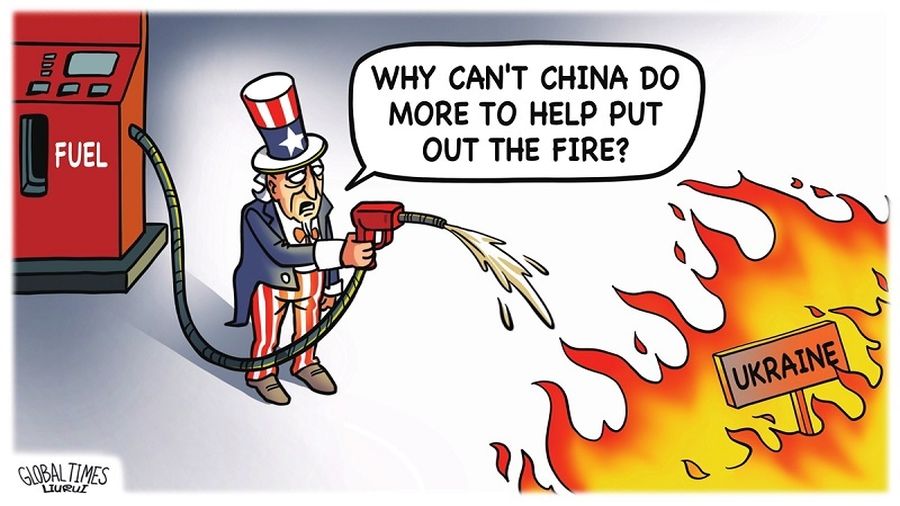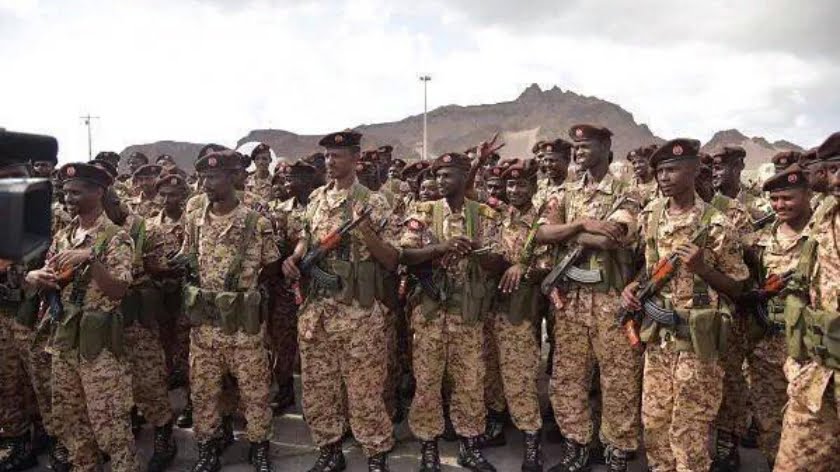It’s Ridiculous to Blame China for the Conflict in Ukraine
To oversimplify the conflict, it’s what happens when a security dilemma turns hot. China believes that if security dilemmas can’t be preemptively averted, then they must be resolved diplomatically if at all possible, but that can only happen if all parties are negotiating in good faith, which the US and NATO weren’t doing according to Russia. Trying to pin the blame on Beijing for the worst security crisis since the Cuban Missile Crisis of 1962 is nothing but a distraction from Washington’s role in exacerbating the explained security dilemma and provoking Russia’s reaction.
Chinese Foreign Minister spokesman Wang Wenbin recently responded to American lies about his country’s position towards the conflict in Ukraine and the role that it could have played in averting it. He said that “This way of abdicating responsibility and spreading slander is very hypocritical and vile.” This follows claims in American media that Chinese President Xi Jinping asked his Russian counterpart Vladimir Putin to delay his special operation there until the end of the Beijing Winter Olympics.
It also comes on the tail of US officials criticizing China for its neutral stance towards the conflict at the United Nations. Beijing abstained from resolutions at the Security Council and the General Assembly condemning Moscow for its military operations in the neighboring former Soviet Republic. The People’s Republic has also refused to sanction Moscow. These sovereign expressions of the country’s strategic independence riled the declining unipolar hegemony that demands full compliance with its diktats.
The conflict in Ukraine is very complex and multifaceted. It isn’t as simple as the West misportrays it as being when describing the events as a so-called “Russian invasion”. China respects all countries’ territorial integrity but it also doesn’t believe in any given one or group thereof like NATO making moves on the pretext of enhancing their own security that ultimately occur at any third party’s expense like Russia’s. To oversimplify the conflict, it’s what happens when a security dilemma turns hot.
This concept refers to the theory in International Relations that countries that take certain – mostly military – moves on the pretext of defending themselves end up, whether deliberately or inadvertently, prompting concerns from others that such moves are at the expense of their own security. The second state then undertakes its own similar such moves that feed into the first one’s security concerns, thereby sparking a spiral of escalatory measures that reduces trust and heightens tensions.
The Ukrainian government wanted to join NATO for years because it believed that this was the only way to supposedly protect itself from Russia. That alliance, however, was created as an anti-Soviet one that Moscow still regards as being directed against its security interests. The Kremlin consistently maintained that Kiev’s membership in the bloc would cross one of its national security red lines. The Russian government also expressed concerns about the presence of NATO’s infrastructure in that country.
Furthermore, President Putin revealed on 24 February when announcing his country’ special military operation in Ukraine that NATO’s clandestine military infrastructure there could have been used to launch a surprise attack against Russia. This would presumably have followed the US’ eventual neutralization of that country’s nuclear second-strike capabilities through its continued regional deployment of “anti-missile systems” and strike weapons near its borders.
The American, NATO, and Ukrainian positions are that such alleged moves are defensively motivated and don’t pose a threat to Russia whereas Russia maintains that they cross its national security red lines. That was why the Kremlin shared its security guarantee proposals with the US and NATO in late December while reiterating its call on Kiev to finally implement the UNSC-endorsed Minsk Accords for ending the conflict in its Donbass region. All three regrettably failed to respect Russia’s concerns.
Faced with what his intelligence agencies concluded was “a showdown between Russia and these forces that cannot be avoided”, as the Russian leader described it on 24 February, President Putin authorized his military’s special operation in Ukraine aimed at denazifying it, demilitarizing it, bringing to justice those who’ve carried out crimes against civilians (including Russian citizens), and ensuring that this neighboring nation never joins NATO nor pursues development of nuclear weapons like it hinted.
China had absolutely no role in shaping this sequence of events. The People’s Republic is located on the opposite side of Eurasia and maintains close economic, financial, and other ties with all parties to this conflict, both the direct Russian and Ukrainian ones as well as most of the NATO countries (notwithstanding Lithuania). It had no advance notice of President Putin’s military-strategic calculations like US media claimed. China, like the rest of the world, was surprised by how events unfolded.
Precisely due to its strict adherence to international law as enshrined in the UN Charter, China pursues a principled policy of neutrality and is adamantly against the unilateral imposition of sanctions that are imposed outside the authority of the UNSC, which is the world’s supreme legal body. Beijing calls on all sides to pursue peaceful solutions to their disputes and for no one to advance their security interests at anyone else’s expense.
Put another way, China believes that if security dilemmas can’t be preemptively averted, then they must be resolved diplomatically if at all possible, but that can only happen if all parties are negotiating in good faith, which the US and NATO weren’t doing according to Russia. Trying to pin the blame on Beijing for the worst security crisis since the Cuban Missile Crisis of 1962 is nothing but a distraction from Washington’s role in exacerbating the explained security dilemma and provoking Russia’s reaction.
America’s arrogant attitude disqualifies it from playing any role in peacefully resolving the ongoing conflict. It doesn’t negotiate sincerely, nor is it neutral, but always pursues its own interests at everyone else’s expense. Those major countries like China that have remained neutral are the most credible parties for helping to bring the conflicting sides together if they request its assistance. The whole world is hoping for a speedy and peaceful resolution of the conflict and that the US doesn’t make it any worse.







